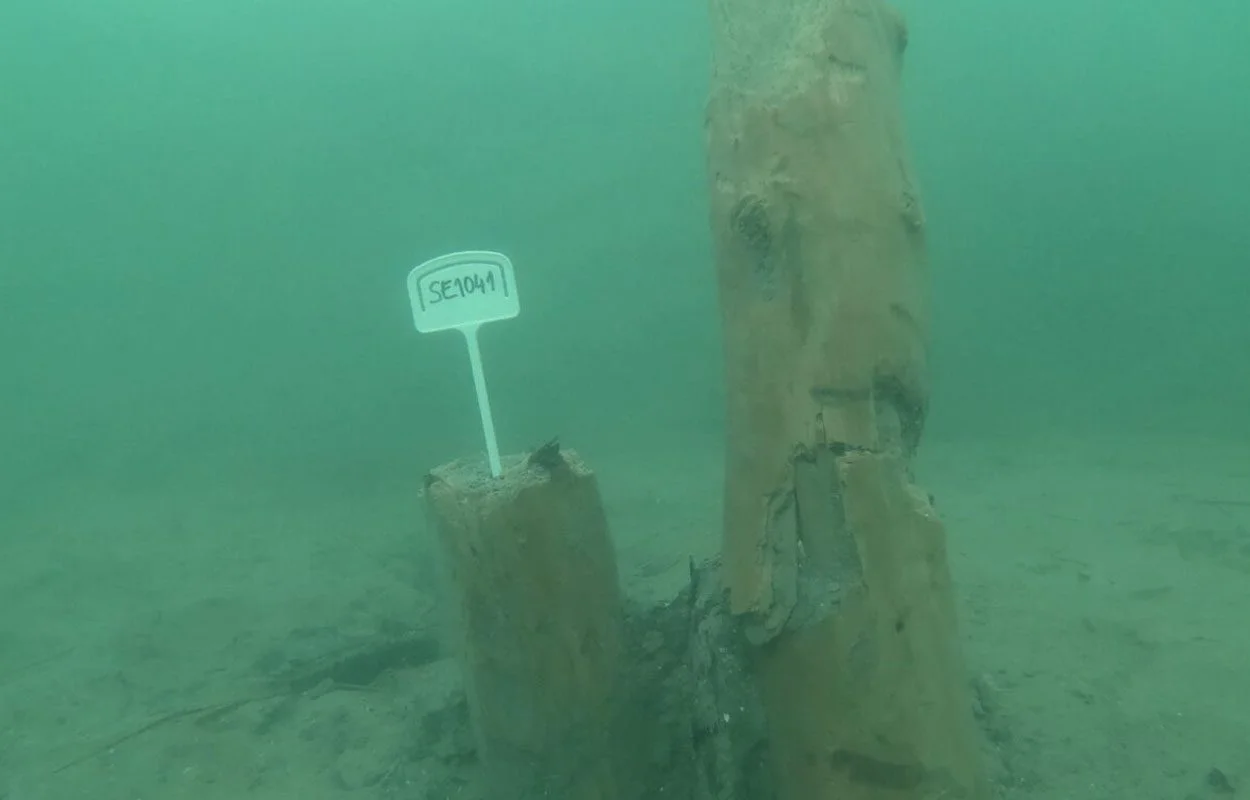Archaeologists from the Institute for Underwater Archeology (ZaPA) have uncovered submerged Roman remains off the coast of Portorož, Slovenia.
Portorož, meaning “port of roses”, sits on the Adriatic on a small peninsula in the Municipality of Piran.
During the Roman period, the peninsula was annexed between 178 and 177 BC by the expanding Roman Empire, where a rural community established residences known as villae rusticae.
Underwater archaeologists from ZaPA have been conducting a recent study of a small coastal area across from the Faculty of Maritime Studies and Transport.
– Advertisement –
The team have uncovered submerged Roman-era layers containing a significant quantity of ceramics, including amphorae and imported kitchen and tableware.
The study has also found evidence to indicate that the study area served as a Roman port during antiquity, evidenced by the discovery of a keel (a lengthwise timber from the base of a ship), large numbers of wooden stakes, and two wooden masts that date from the 3rd and 4th centuries AD.

According to the researchers: “The findings so far indicate that in late antiquity there was a small port with a mooring and a wooden structure.”
Previous studies of the Portorož coastline has revealed traces of a submerged settlement and Roman era buildings, with a 2004 study finding a Roman fish farm near to the present study area.
ZaPA – The Institute for Underwater Archaeology is a non-profit private organisation that collaborates with archaeologists and other experts in underwater heritage from Slovenian archaeological institutions and private sectors.
Header Image Credit : ZaPA
Sources : ZaPA – Completion of excavations in Fizine
– Advertisement –

